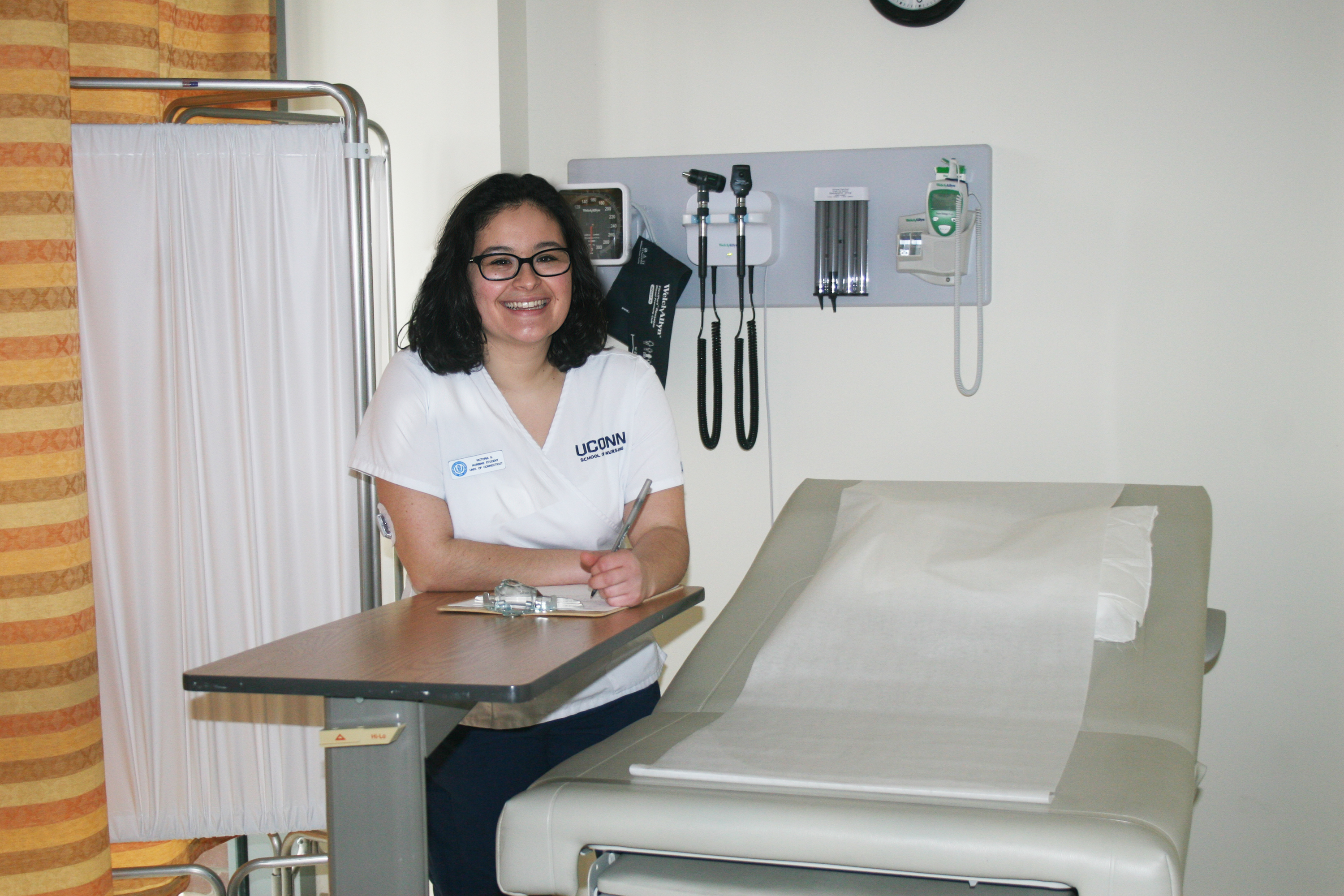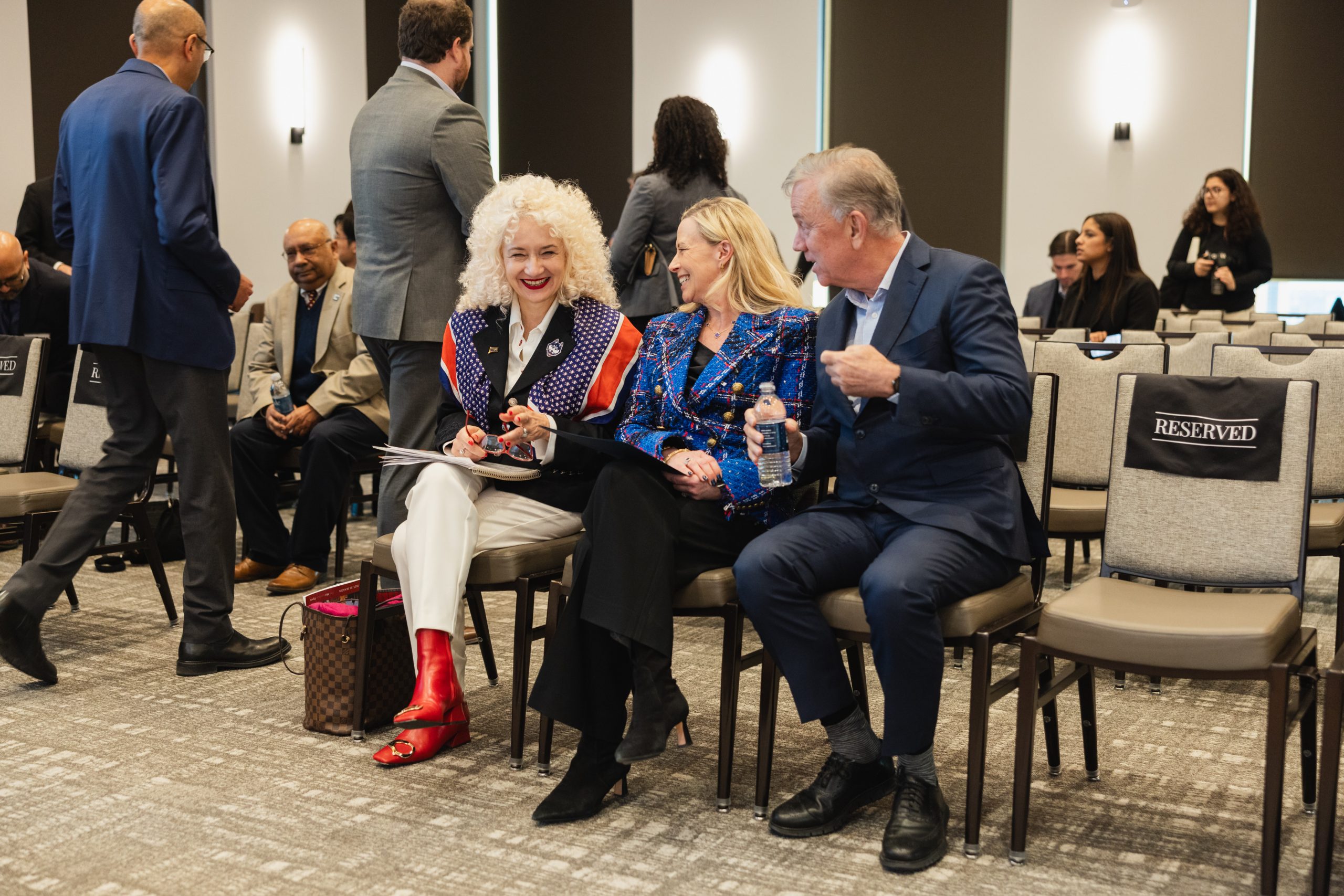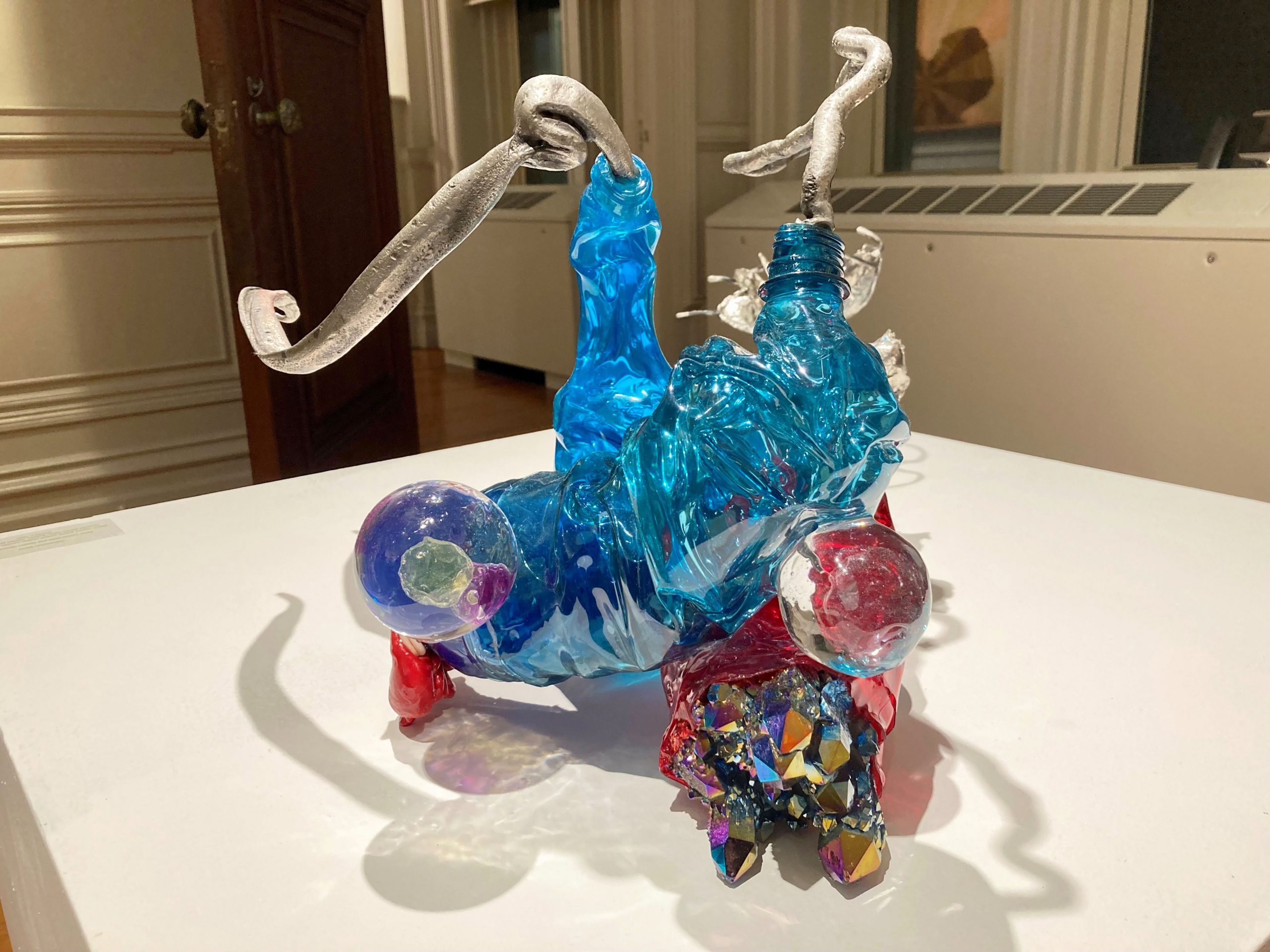
Life is what happens when you are making other plans, as many UConn School of Nursing students learn in the course of their classroom and clinical experiences. What makes a student a leader, however, is the ability to adapt to new circumstances and seize unexpected opportunities, a lesson not lost on pre-licensure student Victoria Sylvestre.
As a University Scholar in her senior year, Tory has risen to the challenge of developing a research program by rigorously pursuing her area of inquiry – investigating how people with type 1 diabetes straddle the line between ability and disability. Recognized as one of the most exciting undergraduate researchers in disabilities studies programs across the country, Tory was supported by UConn’s Humanities Institute for her work.
Recently awarded funding from the Office of Undergraduate Research for her summer research project, “Tory continues to rise to the top among a competitive group of undergraduate scholars. She represents the hard work and resilience of our students,” states Dean Carol Polifroni.
Earlier this fall, Tory spoke to fellow students, faculty, families, and donors at the annual Reflections of Excellence banquet about her personal and professional journey:
In nursing, we know comfortable shoes are essential, but finding the perfect fit in nursing has been a process for me. My introduction to nursing began with my first hospital experience when I was diagnosed with type 1 diabetes at age seven. At that point, I became interested in a career in healthcare, and I focused on nursing because I remembered nurses’ dedication to comfort and teaching. As I grew and learned to manage my diabetes independently, it was the nurses who offered guidance and empathy. I wanted to be able to do the same for others.
Fast-forward to fall 2013. I found myself in UConn’s introductory nursing class where it was instilled that, “nursing is a calling” and it “takes a special person to be a nurse.” I was thrilled I had made it to the School of Nursing, on the path I had dreamed of as a child. Yet I was worried— did I really feel the calling to be a nurse? I continually wondered if I chose the right career, when months prior I was weighing nursing or engineering. I figured, if it were a calling, I wouldn’t just think I wanted to be a nurse, I would know.
This nagging feeling that something was missing only became more prominent after loving a research oriented, disability studies English class and independent study. Then my anatomy professor remarked, “Are you sure you want to go into nursing? You would do so well in a research program.” I began to contemplate a change and what that would mean for my time at UConn. I approached one of my nursing professors about my dilemma. She responded with resounding confidence: there was no reason why nursing and research or empathy and science needed to be mutually exclusive and that really, nursing required both.
After letting out a sigh of relief (I’m sure my parents did too) this led me to the nursing honors program and my current advisor, Dr. Ruth Lucas. I approached Dr. Lucas because of her connection to pediatrics, the field I was most interested in. We started on finding a research project at Connecticut Children’s Medical Center that I could assist in; however, it did not include a focus on disabilities studies. I attended an application session for the University Scholar’s program, one of the most prestigious undergraduate programs. I was immediately drawn to the emphasis on self-driven interdisciplinary research. As I was filling out the application focusing on the Connecticut Children’s study, something didn’t feel quite right. I had already worked in disability studies and could merge that with a nursing framework, but instead I was opting for research at Connecticut Children’s that did not involve disability studies. After a long discussion with Dr. Lucas, we agreed that following my passion was important, and the University Scholars program was an opportune place to pursue interdisciplinary research.
I’ve got a lot to be thankful for. Through the program I was able to take a graduate research class and craft and implement my own research study. I couldn’t be more excited about my qualitative research investigating how healthcare providers perceive adolescents living with type 1 diabetes and the providers’ conceptualization of disability and its terminology. I can say I’ve conquered the mind-boggling challenge that is the Institutional Review Board (IRB), which has to approve all research proposals. This past summer, through UConn’s Summer Undergraduate Research Fund, despite some challenges I’ve completed participant recruitment and begun qualitative interviews of healthcare providers working with adolescents living with type 1 diabetes. And I was thrilled about the opportunity to present my research in Washington, DC, at the Council for the Advancement of Nursing Science State of the Science Conference.
While I don’t know exactly where my career is going to take me, I now confidently know I’m in the right place. Ultimately, why I’m involved in both nursing and disability studies is embodied in the statement of disability scholar Margret Price: “[care] means giving more when one has the ability to do so . . . . It does not mean knowing exactly what another’s pain feels like, but it does mean respecting each person’s pain as real and important . . . [and] taking for granted it should be understood.”



